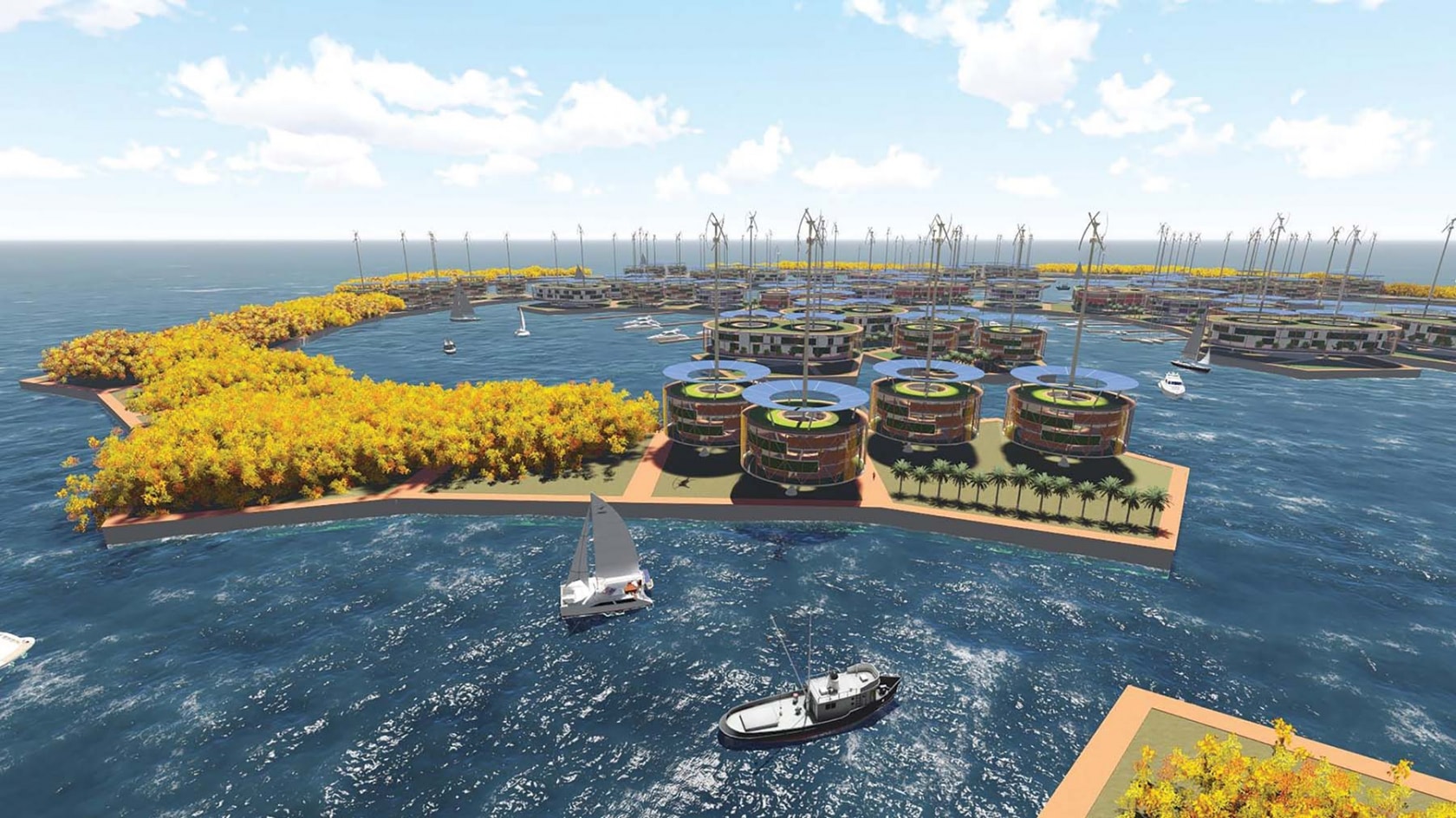Are we finally moving to the sea? Back in February, we wrote about the world's first floating city by the Seasteading Institute. However well executed, until now it remained just an imaginative concept. But this might change in the next couple of years: the startup Blue Frontiers aims to build a floating island by 2020.
The Seasteading Institute and Dutch Blue21 combined forces and started the company Blue Frontiers. Now working in a global team, they are planning on building 7.500 square meters of floating housing and research space, made up of linked platforms, starting 2018.
Moving onto the water will not only provide a possible solution for global land shortage. Using the water can help us create a more sustainable world. As you may well know, our use of fossil fuels has resulted in an excess amount of CO2. If we lived on water, we could have Algae farms in our fluid backyard. We could use these to capture CO2 and make biofuels, bio plastics, cattle food, fish food, as well as human food.
It is likely that, as Blue21 states, “water will give us a second chance to invest in a way that is future proof”. As oil and other fossil fuels were the main incentives behind many of the economic developments of the 20th century, water can be the key to economic progress in the 21st century.
Full of innovative ideas, Blue21 takes some note of the historically destroying effect humans have had on living things around us. They aim to have a positive impact on the planet and want to affect the eco system productively.
Moving back to where we came from might solve our problems. But how this large-scale sea-migration will take shape, is yet to be discussed. Are you curious? Hopefully, you might be able to sail the French Polynesian waters and observe the floating city of Blue Frontiers in a year or two.
Source: Nature. Image: Simon Nummy via SeaSteading

Share your thoughts and join the technology debate!
Be the first to comment